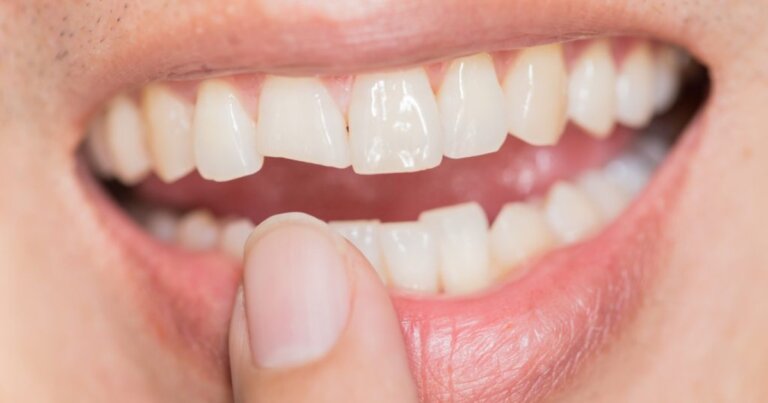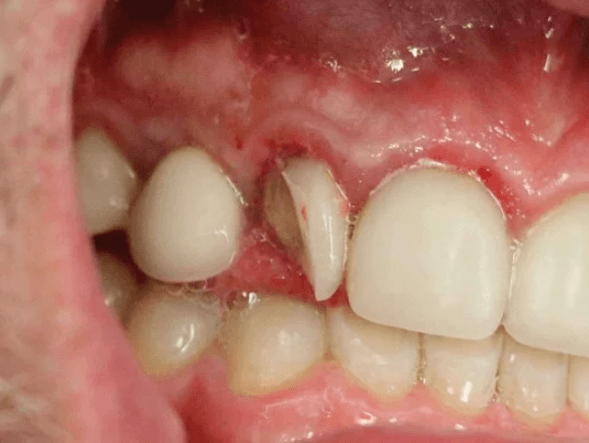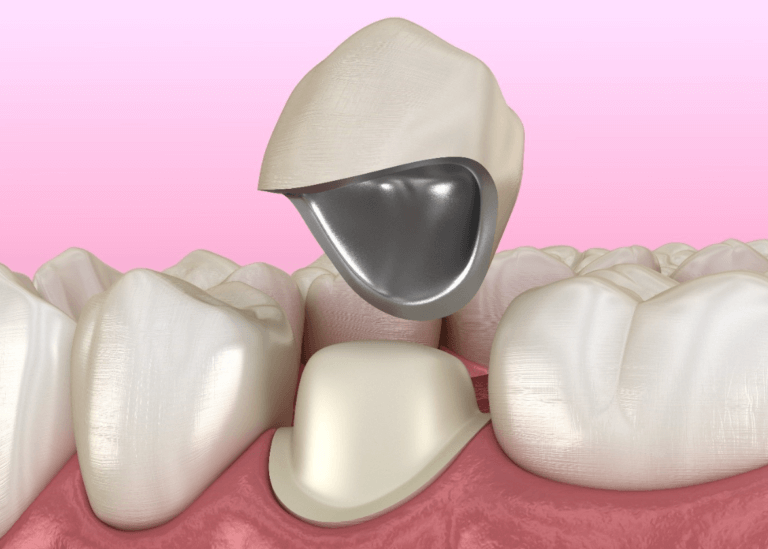Chipped Dental Crown

What Is A Chipped Dental Crown?
Dental crowns are protective restorations made from materials like porcelain, ceramic, or metal and are designed to last for years. However, accidents happen, and crowns can chip, crack, or break, exposing the underlying tooth to potential damage.
A chipped dental crown occurs when part of the crown breaks off, leaving the tooth underneath exposed. This can result from trauma, biting into hard foods, or simple wear and tear over time. While dental crowns are durable, they are not immune to damage. If you suspect your dental crown has chipped, it’s important to see a dentist promptly to avoid further complications like tooth sensitivity or infection. Before you contact a Toronto dentist to examine a Chipped Dental Crown, there are some things you should know as a patient:
- Why Do Dental Crowns Chip?
- Signs And Symptoms Of A Chipped Dental Crown
- Treatment Options For A Chipped Dental Crown
- Managing A Chipped Dental Crown Until You Can See The Dentist
- Frequently Asked Questions About Chipped Dental Crowns
If you have questions about a Chipped Dental Crown or other dental problems, please contact us for more information.
Why Do Dental Crowns Chip?
There are several reasons a dental crown may chip:
- Biting on hard objects: Chewing on ice, hard candy, or other hard items can cause a crown to chip.
- Teeth grinding (Bruxism): Grinding or clenching your teeth, especially at night, can place excessive pressure on your crown.
- Trauma or accidents: A fall or blow to the mouth from a sports injury or accident can result in a chipped crown.
- Wear and tear: Over time, crowns naturally weaken and become more susceptible to chipping.
- Poorly fitted crowns: A crown that doesn’t fit correctly may chip due to uneven pressure during chewing.
If your crown has chipped, it’s essential to determine the cause to prevent it from happening again. Your dentist can assess the damage and recommend the best course of action. If you have further questions about a Chipped Dental Crown, please contact us.

Signs And Symptoms Of A Chipped Dental Crown
You may experience the following if your dental crown has chipped:
- Tooth sensitivity when biting down, especially with hot or cold foods.
- Visible damage such as a crack or missing piece from your crown.
- Rough or jagged edges that you can feel with your tongue.
- Loose crown or the crown falling out entirely.
- Gum irritation if the broken area is sharp and irritates the surrounding tissue.
Ignoring these symptoms can lead to more severe problems, including infection or further tooth damage. See a dentist as soon as possible to address the issue. If you have further questions about signs and symptoms related to a Chipped Dental Crown, please contact us.
Treatment Options For A Chipped Dental Crown
Treatment for a chipped crown will depend on the extent of the damage:
- Dental Bonding: If the chip is minor, the dentist may repair the crown with a tooth-colored composite resin.
- Smoothing the crown: For small chips that don’t affect the crown’s function, the dentist may smooth the rough edges.
- Crown Replacement: In cases of severe damage, replacing the crown may be the best option.
Seeking prompt dental care can prevent complications such as tooth decay, infection, or further damage to the tooth beneath the crown. If you have further questions about treatment options for a Chipped Dental Crown, please contact us.

Managing A Chipped Dental Crown Until You Can See The Dentist
If you’ve chipped your dental crown but can’t see a dentist immediately, here are some temporary measures you can take:
- Keep the broken piece safe: Store any pieces of the chipped crown in a secure container and bring them to your appointment.
- Maintain oral hygiene: Gently brush and floss around the affected area, and rinse your mouth with warm salt water to reduce the risk of infection.
- Avoid hard or sticky foods: Stick to soft foods and avoid chewing on the damaged side of your mouth.
- Use over-the-counter pain relievers like ibuprofen or acetaminophen to manage pain or sensitivity.
Remember, these are temporary solutions. It’s essential to see a dentist as soon as possible to properly assess and treat the damaged crown. If you have further questions about managing a Chipped Dental Crown, please contact us.
Frequently Asked Questions About Chipped Dental Crowns
- Can a chipped dental crown be repaired, or does it need replacement?
Minor chips can sometimes be repaired with composite resin. Extensive damage, however, may require replacement for proper function and aesthetics.
- How long does a dental crown typically last?
With good care, a dental crown can last 5 to 15 years, though habits like teeth grinding or poor oral hygiene can shorten its lifespan.
- How can I prevent my dental crown from chipping?
Avoid hard foods, use a night guard if you grind your teeth, and maintain regular dental check-ups and good oral hygiene.
- Can an untreated chipped crown cause other problems?
Yes, it may lead to tooth sensitivity, gum irritation, or damage to the supporting teeth. Timely dental care is essential to avoid complications.
Addressing a chipped dental crown promptly can prevent further complications and ensure your oral health stays on track. If you have further questions about managing a Chipped Dental Crown, please contact us.

